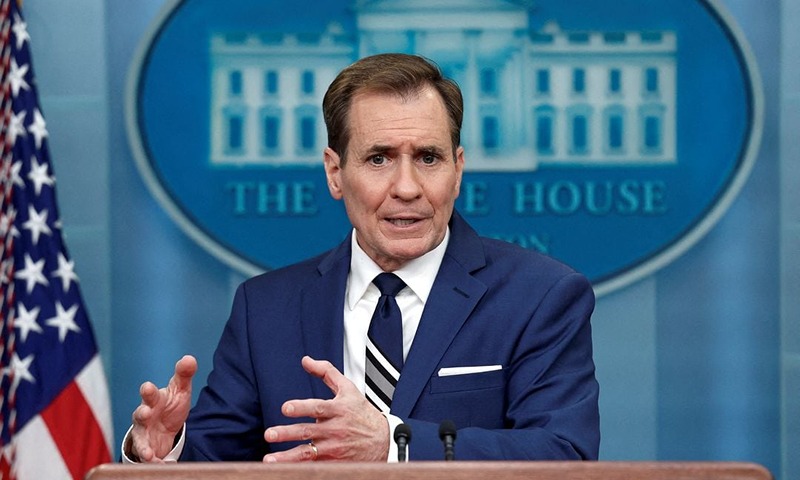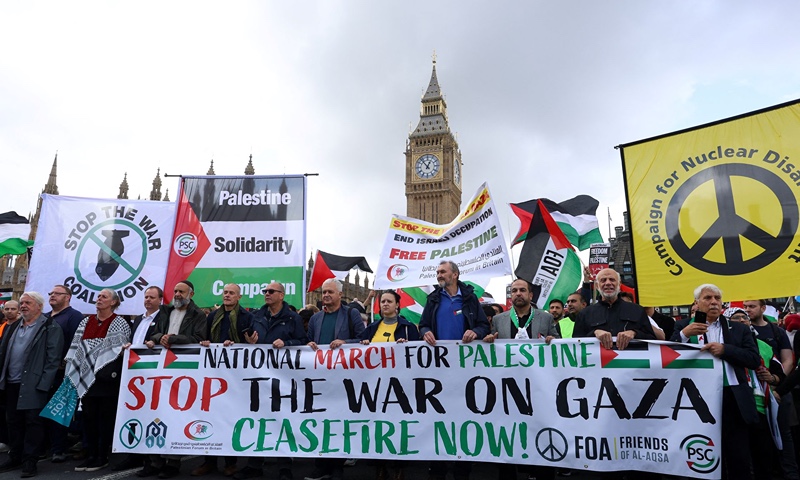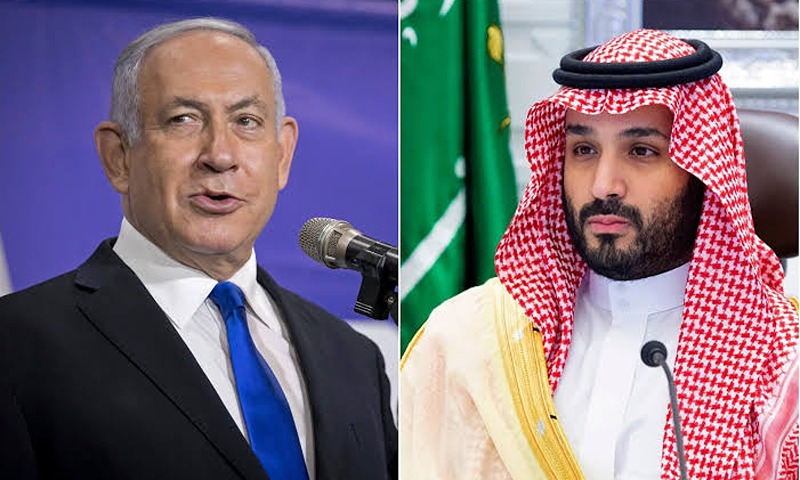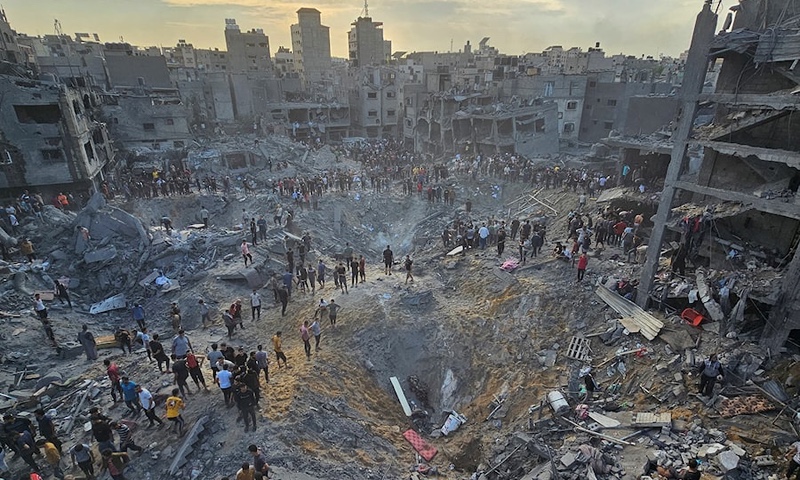White House reiterated President Joe Biden’s commitment to a two-state solution to the Israeli-Palestinian conflict despite Israeli Prime Minister Benjamin Netanyahu’s rejection of the establishment of a Palestinian state.
Following Netanyahu’s comments, US National Security Council spokesperson John Kirby said that there would be no reoccupation of Gaza after the war and emphasized that the US remains committed to a two-state solution.
Kirby said that President Joe Biden would “not stop working” toward a two-state solution and that it was in the best interest of Israelis, Palestinians and the entire region.

Netanyahu opposes a Palestinian state in postwar scenario
Israel’s prime minister has told the United States that he rejects any moves to establish a Palestinian state when Israel ends its offensive against Gaza, and that all territory west of the Jordan River would be under Israeli security control.
In a nationally televised news conference, Netanyahu said Israel “must have security control over the entire territory west of the Jordan River,” adding: “That collides with the idea of sovereignty. What can we do?”
“This truth I tell to our American friends, and I put the brakes on the attempt to coerce us to a reality that would endanger the state of Israel,” he said.
US stands behind two-state solution
Israeli prime minister’s comments prompted an immediate rebuke from the White House.
“Nothing has changed about President Biden’s desire that a two-state solution is really in the best interest of not only the Israeli people but of course, the Palestinian people,” National Security Council’s spokesman John Kirby told reporters.
“And this is this is not a new comment by Prime Minister Netanyahu. We obviously see it differently. We believe that the Palestinians have every right to live in an independent state with peace and security,” said Kirby.
The White House said that the US would continue working towards a two-state solution and that there would be no Israeli reoccupation of Gaza when the war concluded. “There will be a post-conflict Gaza, no reoccupation of Gaza,” Kirby, told reporters onboard Air Force One after Netanyahu’s speech.

Saudi-Israel normalization conditioned on Palestinian state
The White House hopes to broker a normalization of relations between Israel and Saudi Arabia, a long-sought plan with broad economic and security implications for the region.
US and Saudi Arabia are fully aligned on normalization of ties between Israel and Saudi Arabia would be conditioned on a ceasefire in Gaza and a pathway towards a Palestinian state. Israel is not ready to accept this agreement.
At the World Economic Forum in Davos, US Secretary of State Antony Blinken said that in order for Saudi Arabia’s normalization with Israel to take place, “you have to resolve the Palestinian question.”
“Arab countries are saying … we’re not going to get into the business, for example, of rebuilding Gaza, only to have it leveled again in a year or five years, and then be asked to rebuild it again,” he told CNBC in an interview.

But Netanyahu has turned his back on the plan, insisting on Israeli security control over all of what now comprises the Palestinian territories.
Biden and Netanyahu rift
Benjamin Netanyahu’s explicit rejection of a Palestinian state is a sharpest rebuttal of US foreign policy at a time when the Biden administration has extended military support to Israel as well as political and diplomatic support in international forums.
The statement also exposes visible frustration among senior Biden officials with the Israeli prime minister three months into the conflict between Israel and the Palestinian resistance group Hamas.
Biden has not spoken to Netanyahu in the 20 days since a tense December 23 call, which Biden ended with the words: “This conversation is over.” Before Biden hung up, Netanyahu had rejected his request to release the Palestinian tax revenues Israel is withholding.
US support for Israel remains ‘ironclad’
Despite differences between the two allies, the US support for Israel will continue. “Our support for Israel remains ironclad. But that doesn’t mean that there are no differences between our two countries,” US State Department spokesperson Matthew Miller has suggested.
He added that the issue is “not a question of the United States pressuring” Israel to do anything, but it’s about Israel’s own choices and whether it will seize the opportunity for “greater integration” in the region and ending the conflict.
The US has been Israel’s top financial and diplomatic backer with billions of dollars worth of military aid and vetoes at the UN Security Council to shield the Israeli government from international accountability for its actions in the Palestinian territories.
Israel’s war in Gaza
More than 100 days after the October 7 attack by Hamas, Israel continues to wage one of the deadliest and most destructive military campaigns in Gaza. More than 24,600 Palestinians have been killed, 85% of Gaza territory’s 2.3 million people have fled their homes, and a quarter of the population are starving, according to the UN.

The war has stoked tensions across the region, threatening to ignite other conflicts. Beyond Gaza, Israel’s military also continue to launch attacks in Hezbollah targets deep inside Lebanon.
Tensions are rising across the region with Yemen’s Houthis attacking ships in the Red Sea in support of Gaza and US and UK striking Houthi missile sites in Yemen. This week, Iran launched missile strikes on three different countries – Iraq, Syria and Pakistan – in response to attacks carried out on its soil. Pakistan launched retaliatory strikes inside Iran in the latest escalations. The tit-for-tat attacks have stoked fears of conflict in the Middle East and other regions.

